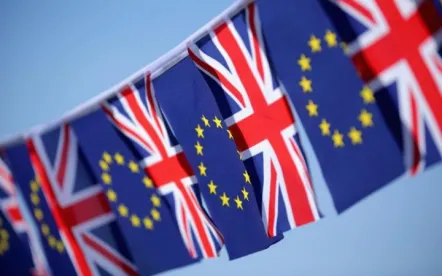The High Court gave its judgment in the Article 50 judicial review proceedings on 3 November 2016. The Court decided the UK Government does not have the power under the Crown’s prerogative to give notice pursuant to Article 50 for the UK to withdraw from the European Union. The Government has confirmed its intention to appeal the decision to the Supreme Court. The Supreme Court has said it will accept a leapfrog appeal (avoiding the intermediate step of a Court of Appeal hearing) and has reserved December 7th and December 8th for the hearing. This will be the first time since the Supreme Court was formed in 2009 that a hearing will take place before all 11 justices, demonstrating the importance of the case.
What was the question before the Court?
The issue before the court was whether, as a matter of UK constitutional law, the Government is entitled to give notice of a decision to leave the EU under Article 50 by exercise of the Crown’s prerogative powers and without reference to the Parliament.
What did the Court decide?
The Court agreed with the claimants that the European Communities Act 1972 (ECA) gives UK citizens certain rights and once Article 50 is triggered, the rights conferred by this statute will be lost. Parliament is sovereign and the Crown cannot, by exercise of its prerogative powers, override rights laid down by Parliament. As a consequence, Article 50’s invocation must be conditional on Parliamentary approval. The Court concluded by saying that the UK Government does not have the power under the Crown’s prerogative to give notice pursuant to Article 50 for the UK to withdraw from the European Union. A summary of the judgment can be found here.
What were the reasons for the Court’s decision?
The Lord Chief Justice said that the Court expresses no political views on the advantages and disadvantages of leaving the European Union but considered the question purely as a matter of law. The High Court noted that it was agreed on all sides that the referendum was advisory only and had no effect on the powers of the Crown vis-à-vis Parliament. The referendum was important as a political event, but had no effect in law.
Both sides agreed that withdrawal from the EU by Article 50 would affect:
(i) UK citizens’ rights capable of being restored in UK law (e.g. rights under EU Regulations);
(ii) UK citizens’ rights in other EU States; and
(iii) UK citizens’ rights that could not be replicated in UK law (such as rights to complain to the Commission or to seek a decision from an EU institution).
On a correct reading of the ECA, Parliament intended EU law rights (in all three categories) to be incorporated in UK law in a way that could not be undone by action taken pursuant to the Royal Prerogative. This is because triggering Article 50 would effect a withdrawal from the Treaties on which all three categories of rights depended, and that could not be done under the Royal Prerogative.
The outcome of this case contrasts with the judgment on 28 October 2016 in the High Court of Northern Ireland where Maguire J rejected various challenges brought under Northern Ireland law to the Government’s position that it can invoke Article 50 under the Royal Prerogative. In that case, the analysis of Article 50 presented to Maguire J seemed to assume that invocation of Article 50 would only “probably” lead to changes in Northern Ireland law and that any change in domestic law would necessarily be controlled by Parliament. Also his judgment was limited to deciding the effect of the Northern Ireland Act 1998 and the Good Friday Agreement on the Royal Prerogative.
What happens next?
It raises the possibility that in order to improve its chances of success on appeal the Government will retract its concession, made in the course of the hearing that the Article 50 notice, once served, is irrevocable. That approach, though, is an unattractive option for the Government, not least because if the issue is regarded by the Supreme Court as being relevant to its decision, the question would have to be referred to the Court of Justice of the European Union for a preliminary ruling.
The High Court’s decision has already increased the pressure on Prime Minister Theresa May. If upheld in the Supreme Court, the decision could make things difficult for the Government. Although the vast majority of Members of Parliament insist that they will respect the outcome of the referendum, it is not so clear what that means in practice. It may mean that the Prime Minister’s timetable for serving the Article 50 notice by end of March 2017 will slip. Already many have been demanding that the Government outline its Brexit plans before serving the notice, and it is difficult to imagine Parliament giving the Government a completely free reign in negotiations. Parliament may insist on certain conditions being met before commencement of the process of withdrawal. Yet with the EU refusing to entertain even preliminary discussions prior to receipt of formal notice from the UK, it is hard to see how the Government could satisfy any but the most cursory of pre-conditions. There could though be yet another twist: the decision has immediately prompted speculation that the Government might seek to bolster its positon by holding an early general election whilst it still holds a commanding lead in the opinion polls over its main Labour opposition.
Mrs May has now moved on from her “Brexit means Brexit” mantra to describing her objective as getting the “best possible deal” (which is not much more informative) while insisting that her negotiating strategy should remain secret. Some, though, have questioned whether the Government can really have a meaningful negotiating strategy unless remaining in the EU is retained as an option: Unless it can unilaterally withdraw its Article 50 notice, the UK will have shot its bolt as soon as the notice is served. The High Court’s decision may actually provide the UK with some much needed breathing space and the opportunity to develop a better articulated set of proposals. There will be many though, on both sides of the English Channel, who will deplore the prospect of further uncertainty and delay. For, even though the case is going to appeal, it has made one thing absolutely clear; in spite of the referendum result, the UK’s referendum decision to leave the EU has not, as yet, actually been implemented.
For the moment Brexit remains very much on the cards: the day after the decision, Mrs May phoned German Chancellor, Angela Merkel, and the President of the European Commission, Jean-Claude Juncker, to confirm that she was sticking to her timetable for serving the Article 50 notice before April next year, apparently assuring them that she had every confidence of winning the case on appeal. In the meantime Business can be sure of one thing alone: the uncertainty as to what Brexit really means will continue for some time to come.




 />i
/>i

